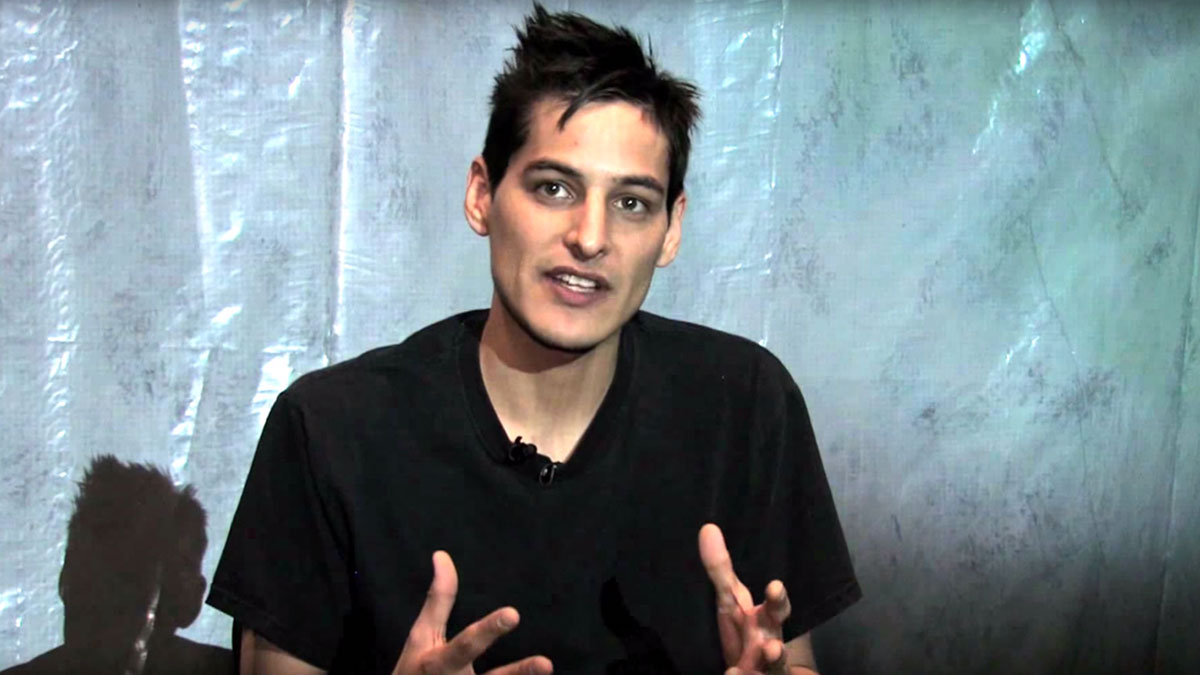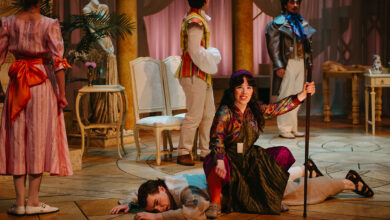Huff’s humorous take on darkness
 Supplied
SuppliedActor and playwright Cliff Cardinal is not in the business of healing wounds. In fact, his one-man show Huff, which is currently touring across Canada, might just inflict some fresh ones. From the first scene, it feels like all the air has been torn from the room, and the audience is left unable to fill their own lungs with enough oxygen.
Huff is a violent, yet somehow darkly humorous sensory experience, eliciting laughter, teeth clenching, and tears in the same breath. It tells the story of young Wind and his two brothers, struggling with the death of their mother, a reserve school system that’s failing them, and a solvent abuse problem that goes ignored (enabled, even) by the people who are supposed to be looking after them.
The only constant is the faceless, ever-present character of Trickster — who is imagined as less of a mischievous prankster, and more of a cruel, vindictive bringer of pain. Trickster is a personification of the social factors and psychological traumas that shape the characters’ lives, existing as a broadcaster for “Shit Creek Radio” in the realm of Wind’s imagination, whose reporting has very real-world consequences. Trickster is the voice telling the boys’ father to have one more drink, and the gust of wind that turns an innocent prank into a forest fire.
When the boys’ father goes from friendly competitor to angry and aggressive in the time it takes to score a goal on Sega hockey, it’s Trickster to blame, not the father. Even the oldest boy, Charles’ violent abuse of his brothers is something that’s hard to hold him accountable for, in part because the other characters don’t seem to blame him either.
Caught up in a narrative including over a dozen unique characters, it’s easy to forget that Cardinal is the only one on stage. From the naïve youngest brother, to the boys’ shuffling Kookum, each character is more captivating than the last, and even characters with seemingly few redeeming qualities are approached with an empathy that has you hurting for each of them, whether or not you like them.
Cardinal masterfully breaks the fourth wall, sometimes calling out to the audience for help without breaking character or interrupting the story, adding an extra dimension of audience engagement to an already gripping show. With his limited use of props onstage, the audience is forced the to join the characters in a world that frequently blurs the lines between what is real and imagined.




